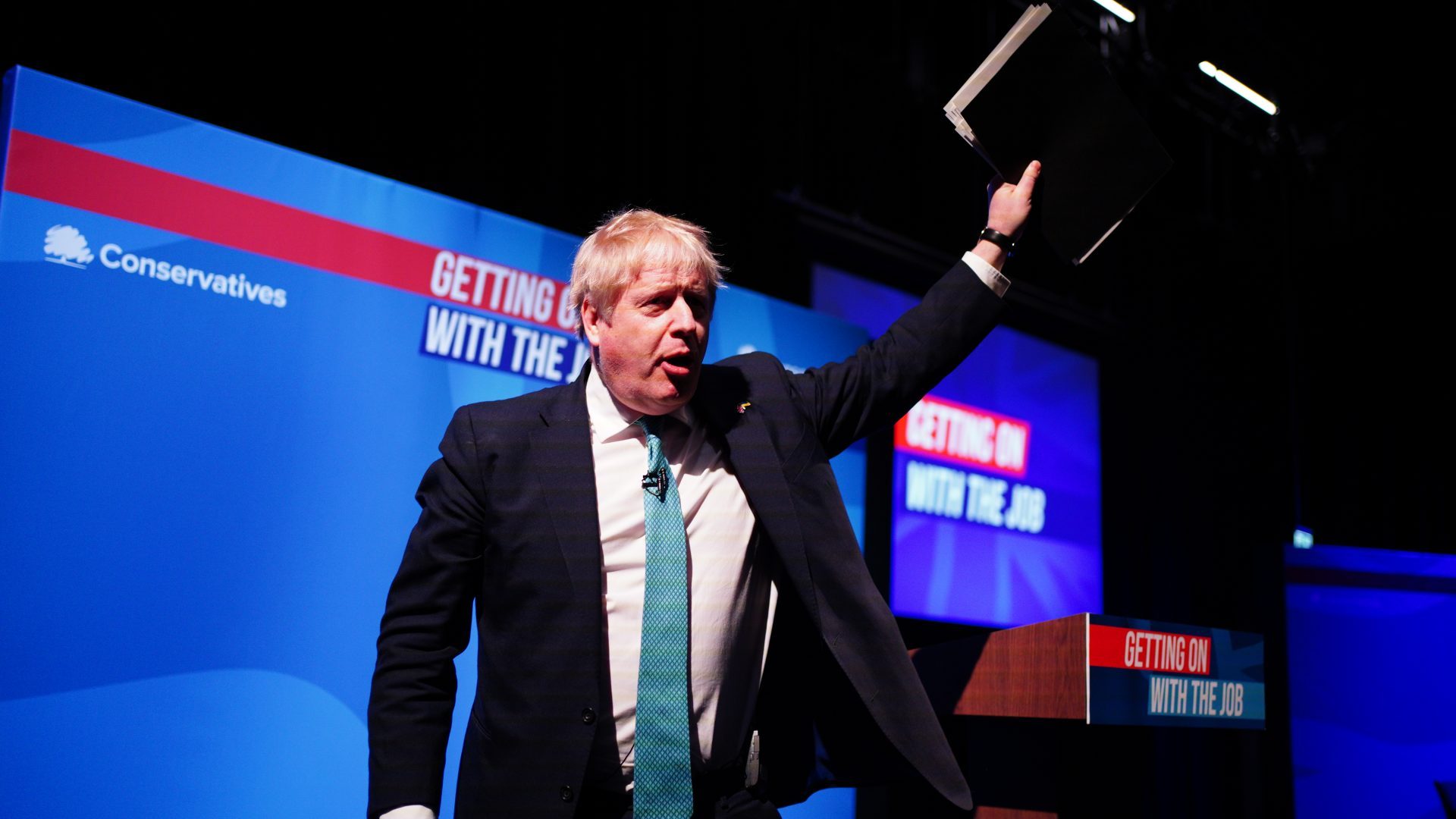Six months ago, GB News announced with some fanfare that Boris Johnson would be “joining in the New Year,” but scarcely hide nor hair has been seen of him on the station since.
“Boris isn’t so sure it’s still such a good idea to be associated with the station,” one of the disgraced former prime minister’s friends tells me. “He has decided to prioritise his Downing Street memoirs for HarperCollins.”
With more than 21,600 complaints about it to Ofcom since launch and the disclosure from Byline Times that the Tory government is now the single biggest advertiser on GB News – more than £1m has been spent on almost 10,500 ads since it launched, including £132,000 in March, making it the largest single advertiser on the channel – it is getting increasingly difficult to make the case that GBeebies is any kind of professional media outfit at all.
Its former star presenter Andrew Neil reckons it has managed to lose around £80m and has no “credible path” towards breaking even, let alone profitability. Redundancies seem to be on the way, with CEO Angelos Frangopoulos reportedly telling staff that auditors are helping him plan a streamlining of operations.
There is said to be an air of desperation in the newsroom. With big names following Neil out of the door – breakfast editor Chris Rogers has recently returned to the BBC after only seven months – it’s hard to see how GB News will be able to survive under a presumably less financially supportive Labour government.
Now Sir Paul Marshall, the right wing hedge fund tycoon who pumped millions into the channel, is said to be about to step down from its parent company, ostensibly to clear the way for his Daily Telegraph bid.
I doubt very much that Michael Booker, its editorial director, is as gung-ho about the channel as he sounded in a recent leaked memo in which he called it “the saviour of the TV news world”. I recall him as a nice liberally minded young man from my days doing Sky News paper reviews with him.
The Tories are now in the death grip of the Brexiters. Labour can only hope they will release themselves from it once in office. But what of the Lib Dems, the party that once made so much of its policy of rejoining the EU?
Liz Webster is a former candidate for the party, and, as the founder of Save British Farming, she is no wild-eyed conspiracy theorist, and she has supplied me with the names of a cabal of influential figures within the party she swears are closet Brexiters.
She wonders at the motivations of the people around Jo Swinson for getting her to push for the last disastrous general election at the very moment a People’s Vote on Brexit seemed within reach and winnable.
The then speaker John Bercow and Anna Soubry, among many others, pleaded with her not to do it, but she went ahead regardless. Sir Ed Davey, when he succeeded the vanquished Swinson as leader, then took it upon himself to abandon the rejoin policy, and the party’s been flatlining in the polls ever since.
“If you’d wanted to neutralise the one English party committed to putting an end to the madness of Brexit you couldn’t have gone about it any better,” Webster tells me. “Sticking with Davey after it became clear he did nothing for the sub-postmasters has now gift-wrapped third place in the polls to Reform. Result.”
Lord Cameron’s jet-setting as foreign secretary may be good for his ego, but it’s costing the British taxpayer dearly. The former PM got through £16,394 per day on overseas travel during his first 35 days in the job.
Used to his creature comforts, Cameron’s six overseas trips cost in all £623,194. He started his jet-setting just two days into the job, with a quick overnight trip to Ukraine and Moldova. The £8,759 cost – via RAF flight – was modest compared with a £29,971 two-day trip to Israel and the occupied Palestinian Territories a week later.
Later, taxpayers had to stump up £84,104 for a private charter trip to the Nato foreign ministers’ meeting in Brussels, when he got to make a self-aggrandising video. He blew most of the cash – £322,653, no less – on a three-day trip taking in Paris, Rome, Jordan and Cairo via ministerial air transport and RAF flight.
His boss Rishi Sunak seems a homeboy in comparison, only managing five trips abroad between October and December last year. Still, Akhil Tripathi, the Tory donor who used to fund his jet-set lifestyle, has been preoccupied with defending himself from allegations of fraud in his business activities.
With the print circulations of the Daily Mail and Mail on Sunday falling, along with staff morale, Lord Rothermere has decided the MBE that was lately awarded to his sports writer Jeff Powell calls for a celebration.
This week he’s invited his troops to a black tie gala evening at the RAC Club in London when he’s laying on champagne for them to toast Powell. He’s persuaded his editor-in-chief Paul Dacre – still smarting over how he never got a peerage – to show up and smile through gritted teeth. And to demonstrate he’s a boss that looks to the future, his lordship has coaxed out of retirement his octogenarian feature writer Geoffrey Levy to write a suitably stirring speech for him.
Old Mail hacks grumble that while there was a bit of a party when the late Ann Leslie was made a DBE, they don’t recall such a fuss ever being made of anyone getting a common-or-garden MBE before. Indeed, when David English, the creator of the modern Mail, was knighted, there was no big party and – in contrast to the virtual supplement that the paper put out to announce Powell’s honour – it warranted barely a filler in the paper.
How Powell got the honour is the subject of speculation. One version is that there had been frantic lobbying that involved Powell’s flamboyant Mexican wife Maria and the likes of Alex Ferguson, the former Man United manager, but this had gone nowhere.
Until, that is, Mail grandee Peter Wright took a call from the Society of Editors, who said they reckoned it was time they put forward the name of a journalist to the honours committee, and asked if he could think of anyone.
The heartbreaking task of having to celebrate other people’s honours aside, Paul Dacre can at least take some consolation in the money he is making on renewable energy.
His green credentials may have been little in evidence when he edited the Daily Mail, but I hear the hydro-electric outfit Canaird River Company – situated on his vast Langwell Estate in Scotland – has built up a £1.4m nest egg.
His estate is entitled to 40% of Canaird’s accumulated earnings – which climbed by £500,000 last year to top £3.5m for 2023. Dacre is well on the way to making back the £2.5m he splashed out on his Highland retreat in 2009. The old boy makes money, too, from taking in paying guests in cottages on the estate at almost £5,000 for a week in August.




